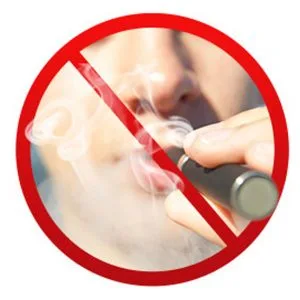Over the past several months, the vaping world has been attacked by both our media and our government. Allegations about vaping companies have been strong and bold, suggesting that vaping companies are targeting youth in an attempt to get them hooked on nicotine at an early age. The media and our government have been suggesting that the reason e-liquids and vaping products contain flavours such as strawberry, bubblegum, chocolate, and the like is to intentionally attract young people to vaping.
laws
Laws & Regulations
Proposed bill in Saskatchewan will increase restrictions on vaping
Jim Reiter, the Health Minister of Saskatchewan has introduced a bill proposing changes to the Tobacco Control Act. The legal age for smoking in Saskatchewan will remain at 18; however, the majority of current tobacco regulations and laws will now be emulated to vaping products. The proposed restrictions will mirror those currently in place for … Read more
Should we ban ground beef? Pet turtles? Don’t ban vaping – Salmonella is killing Americans!
From the mind (and mouth) of Howie – Founder of CanadaVapes.com – Canada’s First (and subjectively best) Vape Shop since 2010. The Controversy Surrounding Vaping Bans In recent months, the discussion around banning vaping has reached a fever pitch. Several states have outright banned all vaping devices, regardless of whether they’re being used as … Read more
Richmond British Columbia bans promotional advertisements for vaping on city property
City Council voted unanimously against advertisements for vaping products on any city property throughout Richmond British Columbia. Clay Adams, who is the spokesperson for the city of Richmond, states “vaping is a significant health issue. All the evidence suggests that, and this is the at least one thing that we can do. We hope others … Read more
Toronto Ontario considering mandatory licences for local vape shops
This Monday, October 7th, 2019, the General Government & Licensing Committee signed off on a new recommendation. This vaping regulation would require businesses that sell vape products in Toronto to buy a license from the city. If this proposal continues it could come into place by the end of October. Its estimated in the Toronto … Read more
Yukon to raise their smoking & Vaping age to 19
Wondering about legal vaping age in Yukon? Yukon is raising the age that its residents are allowed to smoke or vape and is proposing further limits on how vaping products can be sold, used and promoted. The Tobacco and Vaping Products Control and Regulation Act was introduced in Yukon’s legislature on Monday and would raise … Read more
Nova Scotia P.C.’s to ban vaping for individuals under 19 & ban flavours.
The Progressive Conservatives from Nova Scotia are introducing a bill to ban vaping for anyone under 19 across Nova Scotia. “We know there’s a lot of health risks associated to vaping and we know that too many young people are vaping, so this is a matter of public interest and something that should be discussed … Read more
Vape bans could have disastrous consequences – undoing gains in smoking cessation – expert warns
“It is like everyone has forgotten about smoking, which will kill over 100 Canadians today,” he said. David Sweanor, Professor in the Center for Health Law, Policy and Ethics at the University of Ottawa said bans and restrictions on vaping could drive more people to smoke. This could undo years of work the public health … Read more
Doctor states vaping bans are “A Tremendous overreaction” to vaping related illness
Overreaction to Vaping-Related Illness: A Doctor’s Perspective In recent weeks, there has been widespread news about various government sources threatening and even implementing vaping bans. This reaction has been triggered by the deaths of seven people and serious lung illnesses in up to 400 individuals, all linked to vaping. Several governments worldwide are eager to … Read more
Newfoundland and Labrador working on e-cigarette and vaping legislation
OUR Two cents: This article displays just another province reciting what other provinces have already proposed. At the very least, the article does talk about people being divided on the issue, and actually seeing the potential benefits of vaping over smoking as a significant harm reduction strategy. The argument that we should ban vaping because … Read more











